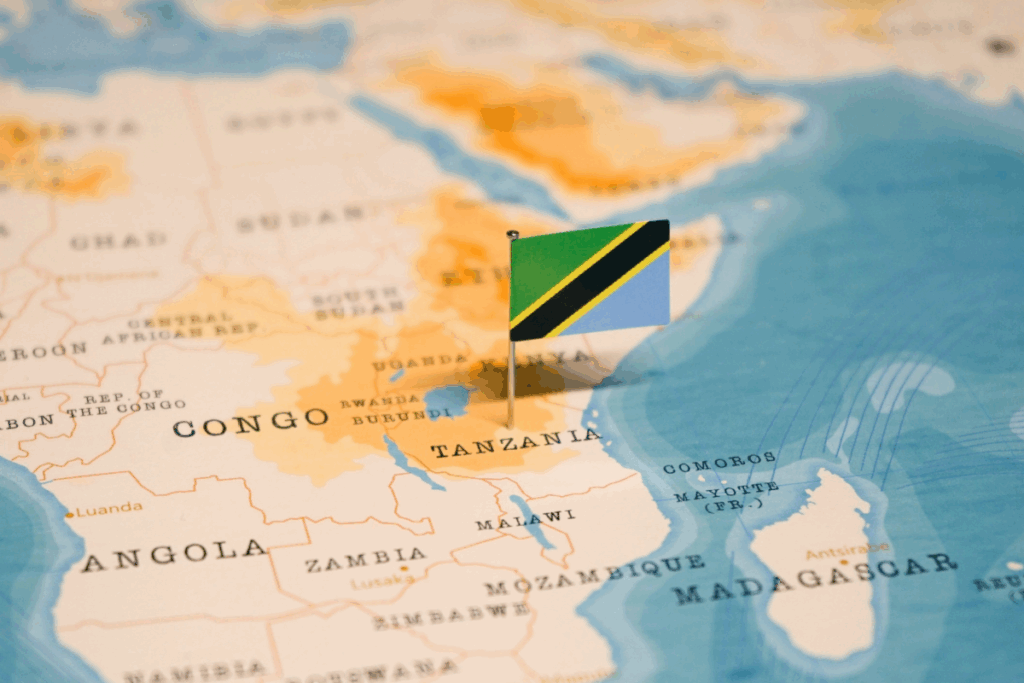President Sworn in Amid Internet Blackout and Deadly Crackdown
Tanzania’s President Samia Suluhu Hassan was sworn in Monday for a new term in a tightly controlled ceremony marked by grandeur but no public attendance — a stark contrast to previous inaugurations. Hassan claimed victory with 98 percent of the vote in the October 29 election, but opposition groups and rights advocates say the result was neither free nor fair.
The country’s largest opposition party, Chadema, was banned from participating in the vote, and its leader, Tundu Lissu, remains imprisoned on treason charges. His party has rejected the election outcome outright. “These elections were completely illegitimate — a total sham,” Chadema spokesman Deogratias Munishi told NPR from neighboring Kenya, where he fled after what he described as a violent state crackdown on protesters.
With Tanzania under a nationwide internet blackout, reports from the ground remain difficult to verify. However, videos shared by human rights organizations show widespread destruction, with civilians killed in clashes with security forces. Munishi said over 1,000 people have been killed and accused police of burying victims in mass graves — claims that authorities deny. The government has not provided official casualty figures but has insisted that its forces acted with restraint.
Opposition Leader Faces Death Penalty
Before his April arrest, Tundu Lissu had been leading nationwide rallies under the slogan “No reforms, no elections,” calling for political and judicial changes before any vote. Rights groups reported multiple incidents of enforced disappearances and torture during the campaign period.
Lissu’s lawyer, Robert Amsterdam, said his client is being held in solitary confinement and faces the death penalty if convicted. “There is absolutely no legitimacy to last week’s fraudulent activities,” Amsterdam said, urging international condemnation. He criticized the African Union for congratulating Hassan instead of addressing reports of violence, calling the organization “a clubhouse for dictators.”
From Reformer to Enforcer
When Hassan first assumed the presidency in 2021 following the sudden death of John Magufuli — the authoritarian leader nicknamed “the Bulldozer” — she was celebrated as a reformist. Her early decisions to lift bans on opposition rallies, release political prisoners, and ease media restrictions raised hopes for a democratic revival.
Four years later, those hopes have evaporated. Critics now accuse her of consolidating power through repression. Many Tanzanians believe her son, Abdul Halim Hafidh Ameir, played a key role in the post-election crackdown. Though unconfirmed reports suggest some army units refused to fire on protesters, the military chief dismissed such claims, calling demonstrators “criminals.”
On Sunday, Pope Leo appealed for peace from the Vatican, urging Tanzanians to “avoid all forms of violence and pursue the path of dialogue.” Despite that call, schools remained closed and public transportation was halted Monday, while the internet blackout persisted nationwide.
Growing Regional Unease Over Rigged Elections
Tanzania’s unrest comes amid a troubling pattern of contested elections across Africa. In recent weeks, Cameroon’s 92-year-old Paul Biya secured an eighth term amid allegations of fraud, while Ivory Coast’s Alassane Ouattara extended his rule into a fourth term after barring leading opposition figures.
For Tanzania, once viewed as a stable democracy in East Africa, the crisis marks a sharp turn. As Munishi put it, Chadema will not relent: “As long as it takes, Chadema will continue — whether Tundu Lissu remains in prison or not.”


